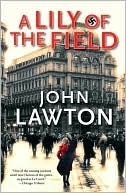What do you think?
Rate this book


The Isle of Man, 1940. An interned Hungarian physicist is recruited for the Manhattan Project in Los Alomos, building the atom bomb for the Americans.
Auschwitz, 1944. Méret is imprisoned but is saved from certain death to play the cello in the camp orchestra. She is playing for her life.
London, 1948. Viktor Rosen wants to relinquish his Communist Party membership after thirty years. His comrade and friend reminds him that he committed for life...These seemingly unconnected strands all collide forcefully with a brazen murder on a London Underground platform, revealing an intricate web of secrecy and deception.
The ensuing events have personal significance for Scotland Yard Detective Frederick Troy. He finds himself pursuing a case with deadly and far-reaching consequences that ultimately threaten the balance of power in Europe.
381 pages, Hardcover
First published October 5, 2010